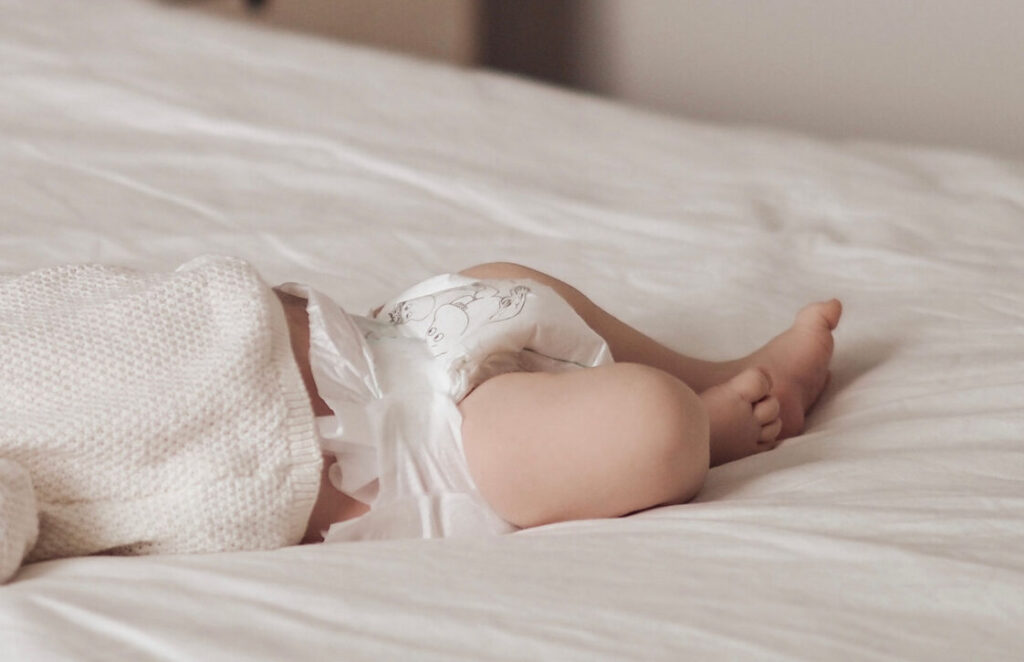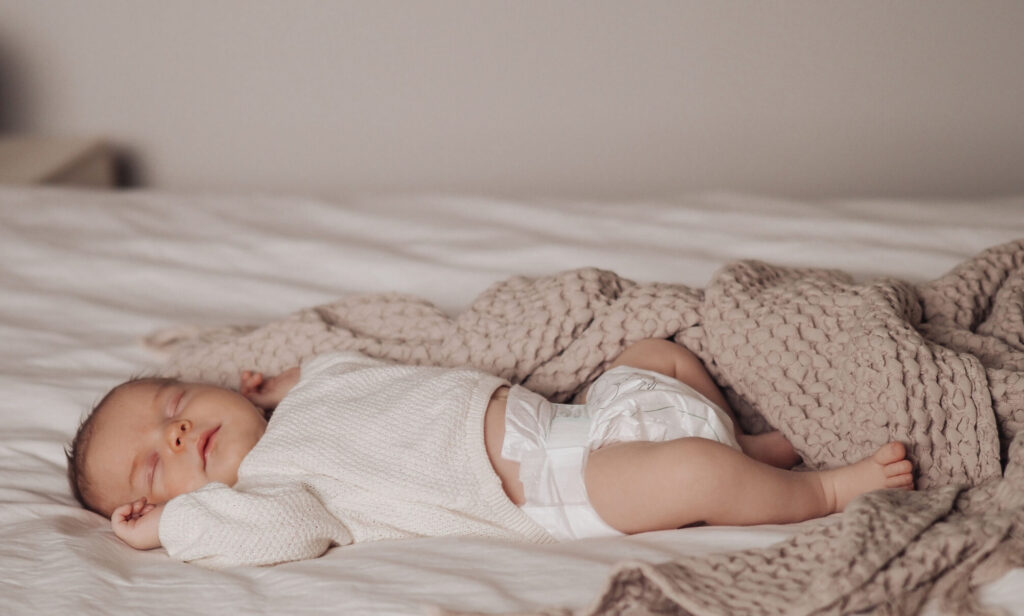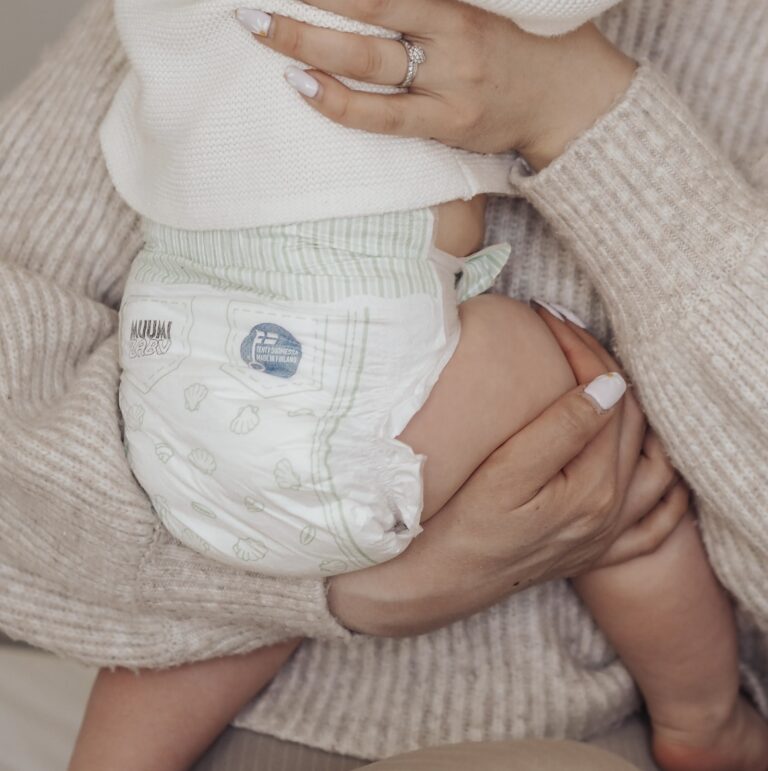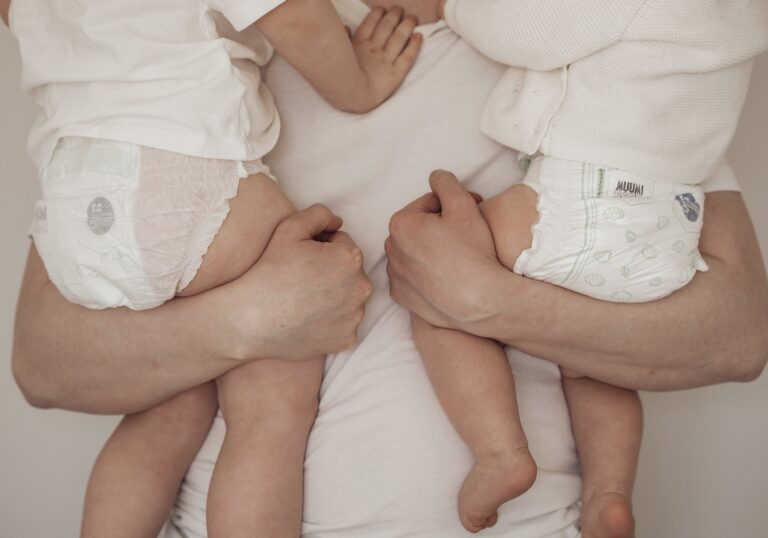Night wakings are a daily occurrence for most new parents, and changing diapers is an integral part of that. However, many may wonder whether a night-time diaper change is necessary or can it be skipped? In this blog article, we look at when night-time diaper changes are necessary and how they affect your baby’s sleep and well-being. We also look at how you can make it easier for you and your baby to get a good night’s sleep with night-time diaper changes.
How often should the diaper be changed at night?
Diaper changing at night depends on the age, sensitivity and absorbency of the child. A small baby will often pee in the diaper several times during the night. If your baby tends to get rashes or has sensitive skin, it may be a good idea to change the diaper at night feeds, for example, if the diaper feels full and the baby is uncomfortable. If your baby poops in the diaper at night, it is a good idea to change to a clean diaper so that your baby’s skin is not irritated by a dirty diaper. As babies grow, their sleep cycle changes and they generally sleep for longer periods at a time, so there is no need to change the diaper at night if the diaper does not leak and the baby is not uncomfortable. The most important thing is to observe the child’s needs and respond appropriately.
As your baby grows, the sleep cycle changes, and with longer sleep cycles, nightly diaper changes are usually not necessary.
Tips for effortless diaper changing in the dark
A hassle-free diaper change at night is ensured by being prepared and having the right equipment. Keep diapers, wet wipes and possibly some lotion within easy reach, for example on the bedside table or on the floor next to your bed. A dim nightlight or headlamp will help you see what you need in the dark without disturbing your child’s quality of sleep or waking them up too much. Use lightweight clothing with your child, such as zippered sleep suits or pants, to speed up the changing process. Do not play or otherwise stimulate your child at night, but try to change the diaper quickly so that you and your child can resume sleep afterwards. Once diaper changing becomes a routine, night changes will be easier.
The effect of nightly diaper changes on your child’s sleep rhythm
The effect of night-time diaper changes on a child’s sleep rhythm is individual. For some children, night-time diaper changes may cause sleep disturbances and the child may have difficulty getting back to sleep. Depending on the child’s sleep cycle, some children may sleep soundly during a diaper change. It is advisable to make the night-time diaper change as quick and routine-based as possible, and not to otherwise stimulate the child during the night.
The need for night-time diaper changing also depends on the age of the child, as newborns and young babies may need to be changed more frequently at night than older children. It is also worth noting that sleeping in a wet diaper for a long time may increase the risk of rashes in some children. Other children’s skin may not react at all, so parents should monitor and act on their child’s reactions and needs for night-time diaper changes.

Nightly diaper changing needs of infants vs. toddlers
Infants often require nightly diaper changes, as their urination and defecation are still irregular. Toddlers, on the other hand, have fewer nightly diaper changing needs as the child begins to self-control their needs. Toddlers may also have a better night’s sleep, which reduces the need for diaper changes. However, the individual needs of the child will be a key factor, so parents should monitor the situation and act accordingly. The need for night-time diaper changes decreases as the child grows, but it is still important to ensure the child’s comfort and hygiene.
How to avoid diaper changing stress at night?
You can reduce the stress of a night-time diaper change in the following ways: firstly, keep all the necessary changing supplies within reach to avoid unnecessary searching at night. Second, dim the room lighting and use a dim night light to help with diaper changes so your child doesn’t wake up fully. Thirdly, change the diaper quickly and calmly to keep the child sleepy. Do not talk to the baby during the night-time diaper change. Finally, practise changing your baby’s diaper during the day to make night-time changes easier and quicker.
Help and peer support for parents with night-time diaper changes
Changing diapers at night can feel challenging and tiring, but luckily there is help and peer support. In social media you can find groups and forums where other parents in the same situation can share their experiences and tips. You can also seek advice from family members, a nurse or doctor if you feel you need help. Remember that every child is different, and children’s sleep patterns change at different ages. Try different methods of diaper changing to find the one that works best for your family. Remember that you are not alone and that night-time diaper changing is only a short period in a child’s life, and as the child grows, night-time wakings and the need for diaper changing often decrease.
For general advice on the frequency of diaper changes from baby to toddler, click here!










